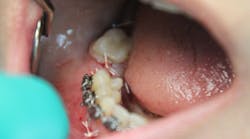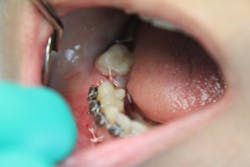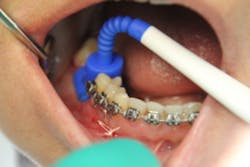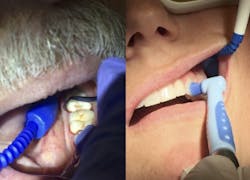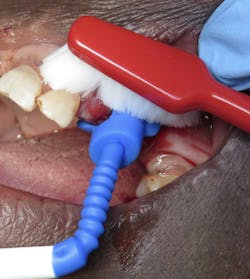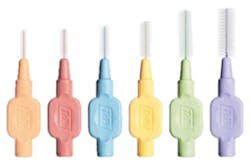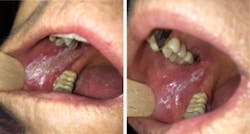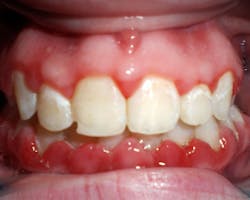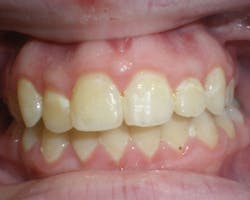Postsurgical discomfort and at-home recovery: 4 ways to make oral care easier
Sometimes, patients find oral care to be incredibly uncomfortable, whether it's from postsurgical discomfort or pain during at-home recovery from orthodontics, autoimmune breakouts, or undergoing cancer treatments. B. Michelle Strange, RDH, MSDH, says there are some helpful products and ways to make maintaining oral health at home easier for your patients.
THERE ARE TIMES during our patients' lives when oral care is incredibly uncomfortable, and maybe even seems impossible. Sometimes this occurs after postsurgical procedures or perhaps during at-home recovery from orthodontic treatment. Other times, patients may experience discomfort maintaining their oral care during autoimmune eruptions such as lichen planus, while undergoing cancer treatments, or even during herpetic breakouts.
No matter the reason behind the discomfort, knowing the products that will to help your patients get through the difficulty will be the most rewarding. Making sure we provide our patients with the best options for at-home oral care can help them heal faster and feel better quicker. Sometimes, short of going home with our patients, clinicians don’t feel as if they have the ability to impact at-home recovery. Following are some helpful products and ways we can assist those who are struggling with maintaining their oral health at-home. Your patients will be grateful!
An in-office and at-home instrument that puts patients at ease
Mouth-Mate is a new home-care instrument for patients who have undergone dental surgical procedures, are suffering from dental sores due to orthodontic appliances, or are suffering breakouts from autoimmune disorders. The instrument allows patients to brush their teeth without disturbing the painful site. It can even be used as a retraction tool for hard-to-reach posterior areas. Patients who are in pain fear accidentally bumping the area of discomfort. Imagine if we could give patients the ability to clean their mouths better and protect tender areas, helping with faster recovery.
Now, imagine that you are battling the always-curious tongue, or that you have a patient in your chair with erosive lichen planus, or maybe a patient with large aphthous ulcers and retraction is difficult. The mirror is hard and offers no protection to the buccal mucosa when retracting. Mouth-Mate has a wonderful oval tip and a flexible head. The oval tip is soft and feels better against areas such as erosive lichen planus when trying to retract and polish the most posterior teeth. Mouth-Mate is also helpful when intraoral scanning. Retraction is often a challenge; it can be uncomfortable and a mirror just won’t work. You can use the instrument on the patient in the dental office, and then give it to the patient to take home and use.
Postsurgical brushes aren’t just for 'postsurgery'
Extra-soft bristles can be found on toothbrushes, interdental brushes, and even end-tufted brushes. They are often labeled “postsurgery,” but they are useful in so many other situations: thin biotypes, oral mucositis, autoimmune breakouts, and severe xerostomia. The bristle, being a softer filament, makes the task of home care not as painful as it often is in these situations, but it may take more effort and strokes to remove the same amount of biofilm as a soft brush.
For patients who have oral lesions or areas of discomfort that come and go, using a line such as TePe’s interdental brushes allows patients to use a soft-bristled interdental brush when their mouth feels healthy and then switch to the same sized extra-soft brush during times of discomfort. This promotes consistency and continuity of their normal home-care routines. The same goes for postsurgical procedures. If the area has healed enough so that interdental cleaning is recommended, the patient can use the extra-soft brush, and then when the tissue is fully healed, move to the soft interdental brush in the corresponding color or size. Your patients will know you care when you give them a couple of brush options that won’t make them feel as if they are brushing with a wire brush as they transition through times of uncomfortable oral breakouts.
recovering tissue. They are also great for thin biotypes and on patients with oral mucositis.
Mouth rinses can be 'magical' for managing oral pain
On the market today, you will find a rinse for everything and many boast very big claims. Mouth rinses aren’t magic potions, but they can be "magical" for patients if we help them find the right rinse for their discomfort. StellaLife Inc. is one mouth rinse that could really help patients with oral pain management. The company's research claims that the formulation of its homeopathic ingredients helps with postsurgical wound healing (Vega Oral Care Rinse), and that is is effective in the management and better healing of mucositis, aphthous ulcers, cold sores, denture sores, and nearly all other dental concerns (Vega Oral Care Gel).
Pleasant pain relief with activated chlorine dioxide rinses
Lichen planus patients, cancer patients, and others have experienced relief when using activated chlorine dioxide rinses, such as OraCare. It is not only more pleasant than some of the harsher mouth rinses on the market, but it tackles many of the nasty pathogens we see in the oral cavity, such as bacteria, viruses, and fungi. When patients are in pain or suffering from a breakout or severe xerostomia, anything that can help soothe or bring pain relief will be so much appreciated.
Extending dental care to the home
No one likes to be in pain, and we in the dental profession understand that. Now, we can help our patients manage their oral health at home, even during the more uncomfortable times. You can give your patients a way to remove the fear of making their pain worse, but also give them the ability to heal faster and prevent further pain from infection. As an industry, we need to do more for our patients at home to improve their outcomes. This first begins with the incredible knowledge and work that is done in the dental office, and now we can extend our dental care to the home. Your patients will be grateful for these innovative solutions. Let’s make sure we are not leaving our patients in pain or fear when they leave our offices.
Other articles by the author ...
5 routine things we do in the dental profession that do not make sense
Dental hygiene nightmares no more: At-home maintenance for success with dental implants
